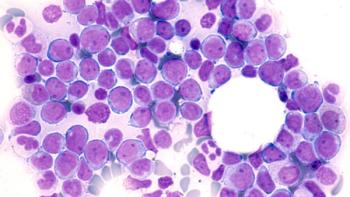
- Pharmaceutical Technology-09-02-2017
- Volume 41
- Issue 9
Counterfeit Pharmaceuticals: A Franchise Business
David McKelvey, director of TM Eye, a detective company based in the United Kingdom, provides insight into the counterfeit pharmaceuticals business.
The counterfeit pharmaceuticals business is made up of networks of “affiliates,” which run illicit websites that sell the fake or substandard drugs.In many cases, the organized criminal gangs behind these networks appear to be based in Eastern Europe, but they operate globally, says David McKelvey, director of TM Eye, a detective company based in the United Kingdom that has been following these groups for years and recently launched successful sting operations in India with India’s drug regulatory authority.
As he explains, the operation is much like any franchise. The criminal gangs contact each prospective affiliate and carry out full due diligence on each applicant, all the while maintaining their own anonymity. Once they are convinced that the affiliate will be a good recruit, they send him or her templates to use for the web sites, instructing the affiliate to buy anonymized domains that have a link to medicines or drugs.
Once the affiliate has set up the anonymous domain, he or she uses the templates provided to develop the website. Each affiliate site links to an “anchor” site, run by the criminal gang. The operations are extremely sophisticated and completely anonymized, says McKelvey. “If taken down, the anchor sites automatically switch to another domain with a functioning website. The links to all affiliates are automatically transferred, in less than a minute,” he explains. Prospective online customers go through the affiliate site, and when they purchase anything, they are redirected, often without knowing it, to the anchor site. Once they click on the shopping cart icon to complete the transaction, they are taken to a completely different website (e.g., the site for a clothing factory in Singapore), where they pay by credit card. Many sites are using bitcoin to hide the money trail, says McKelvey.
Once the purchase is made, the order goes to the fulfillment house and the fake drugs are mailed to the customer in a plain brown envelope sent through the postal system.
As McKelvey explains, affiliates are paid a percentage of every sale in the form of a monthly commission. They never touch the drugs or the money from transactions, but function simply as gateways to anchor sites.
TM Eye worked for six months to break up one network, McKelvey says. So far, the work has resulted in over 7000 linked affiliate and anchor sites being taken down. In addition, a raid on one fulfillment house, Dada Impex, in India, recovered significant amounts of falsified medicines.
Article Details
Pharmaceutical Technology
Vol. 41, No. 9
September 2017
Page: 20
Citation
When referring to this article, please cite it as A. Shanley, “Counterfeit Pharmaceuticals: a Franchise Business,” Pharmaceutical Technology 41 (9) 2017.C
Articles in this issue
over 8 years ago
The Role of the Quality Unitover 8 years ago
Using Simulation to Address Capacity Limitationsover 8 years ago
Scaling Up a Continuous Granulation Processover 8 years ago
The Human Cost of Congressional Stalematesover 8 years ago
Expediting the Discovery and Development of Drugsover 8 years ago
Stepping Up the Pace of Drug Stability Studiesover 8 years ago
Top Trends in Biopharmaceutical Manufacturing, 2017over 8 years ago
A QbD-Based Approach to Drug Packaging and Deliveryover 8 years ago
Targeting the LungsNewsletter
Get the essential updates shaping the future of pharma manufacturing and compliance—subscribe today to Pharmaceutical Technology and never miss a breakthrough.




